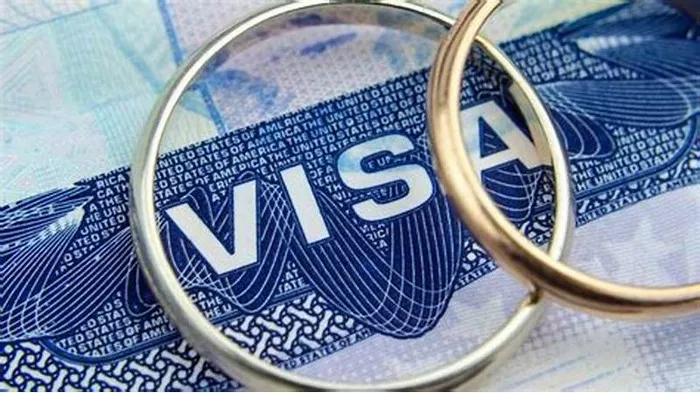In the realm of international travel, obtaining a visa is often a crucial step for individuals intending to journey beyond their country’s borders. Whether it’s for tourism, education, work, or any other purpose, the visa application process can be complex and sometimes daunting. Despite meticulous preparation and adherence to guidelines, visa rejections remain a reality for many applicants. Understanding the underlying reasons behind these rejections is pivotal in navigating the intricate web of visa regulations and enhancing the likelihood of a successful application. This article delves into the common causes of visa rejections, shedding light on the intricacies that influence such decisions.
1. Incomplete or Inaccurate Documentation
One of the primary reasons for visa rejections stems from incomplete or inaccurate documentation. Visa applications typically necessitate a plethora of documents, including passports, identification papers, financial statements, letters of invitation, and travel itineraries, among others. Failing to submit any of the required documents or providing incomplete information can lead to immediate rejection. Moreover, inaccuracies such as discrepancies in personal details or financial inconsistencies may raise red flags for immigration authorities, prompting them to deny the visa.
2. Insufficient Financial Resources
Financial sufficiency is a critical criterion for visa approval, particularly for tourist and visitor visas. Immigration officials assess an applicant’s financial standing to ensure they possess adequate funds to cover their expenses during their stay and prevent potential recourse to public funds. Applicants are typically required to submit bank statements, employment letters, or sponsorship documents as evidence of financial stability. Failure to demonstrate sufficient funds or providing dubious financial documentation can result in visa refusal.
3. Lack of Travel Intent or Strong Ties to Home Country
Visa officers often scrutinize an applicant’s travel intent and ties to their home country to gauge the likelihood of their return after the intended stay. Applicants must convincingly demonstrate their purpose for visiting the destination country and provide assurances of their intention to abide by visa conditions and return home upon expiration. Factors such as weak familial or professional ties, previous immigration violations, or suspicious travel patterns may cast doubt on an applicant’s intentions, leading to visa denial.
4. Previous Immigration Violations or Travel History
Past immigration violations or a history of visa overstays can significantly diminish an applicant’s credibility and jeopardize their chances of securing a visa in the future. Immigration authorities meticulously scrutinize an applicant’s travel history, including previous visa applications, entries, and exits. Instances of overstaying visas, deportation, or involvement in illegal activities during previous visits can severely undermine an applicant’s credibility and trigger visa rejection.
5. Inadequate Travel Itinerary or Accommodation Arrangements
A well-defined travel itinerary and confirmed accommodation arrangements are indispensable components of a visa application, especially for tourist visas. Applicants must furnish detailed itineraries outlining their planned activities, destinations, and accommodations throughout their stay. Failure to provide a coherent itinerary or proof of accommodation reservations can raise doubts about the genuineness of the travel purpose, leading to visa denial.
6. Inconsistent or Dubious Travel History
Consistency and transparency in one’s travel history are imperative for visa approval. Discrepancies or contradictions in travel records, such as frequent changes in travel itineraries, unexplained gaps in travel history, or discrepancies between stated travel purposes and actual activities, can arouse suspicion and undermine an applicant’s credibility. Visa officers meticulously evaluate the consistency and authenticity of an applicant’s travel history to ascertain their bona fides, and any discrepancies may result in visa refusal.
7. Lack of Proof of Strong Ties to Home Country
Strong ties to one’s home country serve as a compelling indicator of an applicant’s intention to return after the stipulated period of stay. Visa officers assess an applicant’s ties based on various factors, including familial relationships, employment status, property ownership, financial commitments, and community involvement. Failure to provide sufficient evidence of strong ties to the home country can lead to doubts about an applicant’s intention to return, thereby resulting in visa rejection.
8. Failure to Meet Health or Security Requirements
Visa applications may be denied if an applicant fails to meet specific health or security requirements mandated by the destination country. Certain countries impose health screenings or require vaccination certificates to prevent the spread of infectious diseases. Similarly, applicants with criminal records or those deemed a security risk may face visa refusal based on security grounds. Compliance with health and security regulations is non-negotiable, and failure to meet these requirements can lead to visa rejection.
9. Submission of Fraudulent or Forged Documents
Submitting fraudulent or forged documents is a serious offense that can have severe consequences, including visa rejection and potential legal repercussions. Visa authorities employ stringent measures to detect document fraud, including advanced verification techniques and cross-referencing databases. Any attempt to deceive immigration officials by submitting counterfeit documents, fabricated employment letters, falsified bank statements, or forged identification papers invariably leads to immediate visa denial and may result in a ban on future applications.
10. Lack of Consular Interview Preparation
In cases where a consular interview is part of the visa application process, inadequate preparation or poor performance during the interview can contribute to visa rejection. The consular interview offers applicants an opportunity to clarify any concerns raised by immigration officials and provide additional information to support their application. Failure to articulate one’s travel plans, address queries satisfactorily, or provide credible explanations for any discrepancies can undermine the applicant’s credibility and lead to visa denial.
Conclusion
Navigating the intricate landscape of visa applications requires meticulous attention to detail, thorough preparation, and adherence to regulatory requirements. While visa rejections can be disheartening, understanding the common reasons behind such decisions is instrumental in identifying areas for improvement and enhancing the likelihood of a successful application. By addressing potential pitfalls such as incomplete documentation, financial insufficiency, ambiguous travel intent, or inadequate preparation, applicants can mitigate the risk of visa rejection and embark on their international journeys with confidence.


